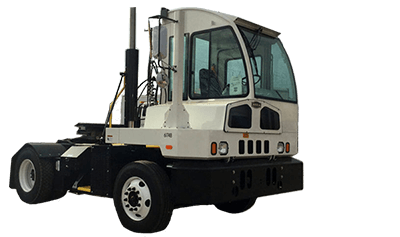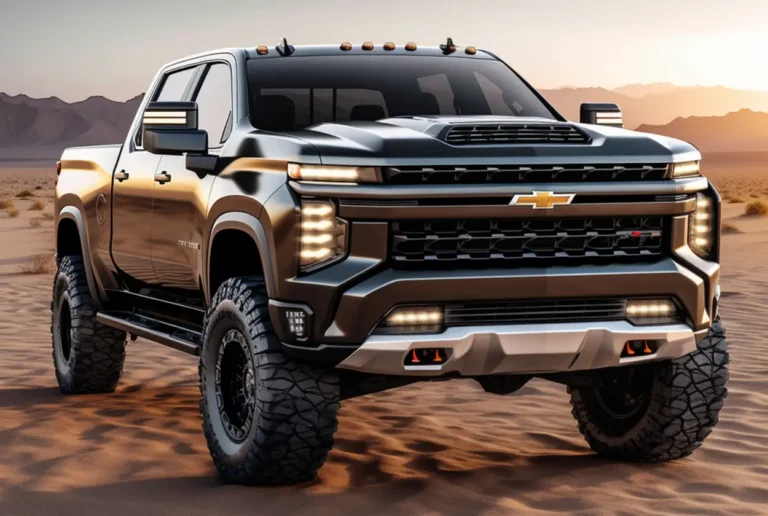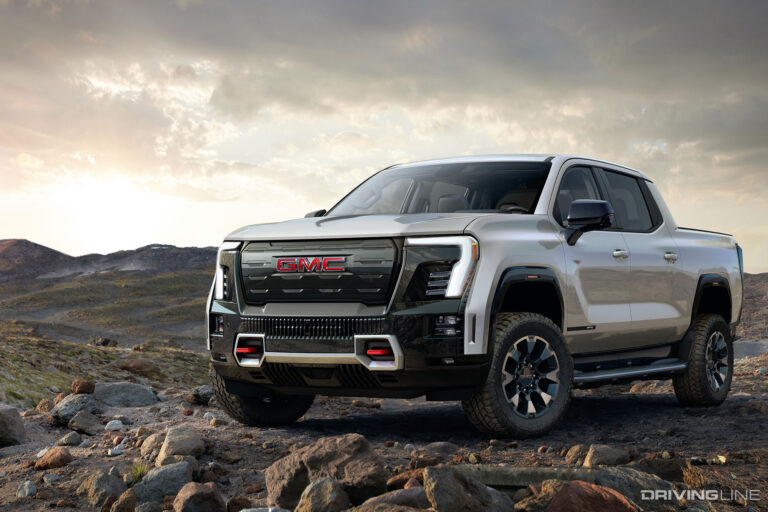Yard Dog Trucks For Sale: Your Comprehensive Guide to Acquiring the Ultimate Terminal Tractor
Yard Dog Trucks For Sale: Your Comprehensive Guide to Acquiring the Ultimate Terminal Tractor cars.truckstrend.com
In the bustling world of logistics, where efficiency and precision dictate success, a specialized piece of equipment often works tirelessly behind the scenes: the Yard Dog Truck. Also known as a terminal tractor, shunter, spotter truck, or yard hostler, this unsung hero is the backbone of any operation that involves moving trailers within a confined space, be it a sprawling distribution center, a busy intermodal yard, a bustling port, or a manufacturing plant.
For businesses looking to optimize their trailer management, enhance safety, and reduce operational costs, investing in a Yard Dog Truck is a strategic decision. This comprehensive guide delves into everything you need to know about "Yard Dog Trucks For Sale," from understanding their purpose and benefits to navigating the buying process and ensuring their longevity.
Yard Dog Trucks For Sale: Your Comprehensive Guide to Acquiring the Ultimate Terminal Tractor
What Exactly is a Yard Dog Truck?
A Yard Dog Truck is a purpose-built vehicle designed specifically for moving semi-trailers short distances within a private facility. Unlike an over-the-road (OTR) semi-truck, which is engineered for long-haul journeys, a yard dog is optimized for frequent coupling and uncoupling, tight turns, and constant stop-and-go operations.
Key distinguishing features of a Yard Dog Truck include:
- Hydraulic Fifth Wheel: The most prominent feature, allowing the operator to quickly raise and lower the trailer’s kingpin without leaving the cab, significantly speeding up trailer swaps.
- Short Wheelbase: Enables exceptional maneuverability in confined spaces, tight docks, and crowded yards.
- Rear-Facing Cab Door: Many models feature a rear-facing door, allowing the operator to quickly exit the cab and connect air lines and electrical cables to the trailer.
- Robust Chassis and Drivetrain: Built for heavy-duty, repetitive tasks, often with powerful engines and heavy-duty automatic transmissions.
- High Visibility: Large windows and often an elevated seating position provide excellent 360-degree views, crucial for safety in busy yards.
- No Sleeper Berth: Reflecting their short-distance, intra-yard purpose, they lack the sleeping accommodations found in OTR trucks.

These design elements combine to create a machine that is unparalleled in its ability to efficiently and safely manage trailers in a yard environment.
Why Invest in a Yard Dog Truck? Key Benefits

The decision to purchase a Yard Dog Truck is often driven by the significant operational advantages they offer. For businesses that frequently move trailers, the benefits are clear:
- Enhanced Efficiency: Yard dogs dramatically reduce the time it takes to move trailers. The hydraulic fifth wheel eliminates the need for manual cranking of landing gear, and their superior maneuverability allows for quicker positioning. This translates to faster loading/unloading times and improved throughput.
- Increased Safety: Designed with high visibility and often equipped with safety features like audible reverse alarms and robust braking systems, yard dogs minimize the risk of accidents in congested areas. Their specialized design also reduces the need for drivers to repeatedly climb in and out of the cab, mitigating fall risks.
- Reduced Wear and Tear on OTR Trucks: Using dedicated yard dogs prevents your expensive over-the-road trucks from incurring unnecessary wear and tear from constant backing, tight turns, and idling in the yard. This preserves their lifespan, reduces maintenance costs, and keeps them on the road generating revenue.
- Cost Savings: While there’s an initial investment, the long-term savings are substantial. Reduced fuel consumption (due to optimized design for yard work), lower maintenance costs for OTR trucks, and increased operational efficiency all contribute to a positive ROI.
- Dedicated Task Specialization: Having a dedicated piece of equipment for yard operations means your drivers can focus on their primary task of hauling freight, leading to better overall fleet management and driver satisfaction.
- Improved Driver Morale: Yard dog operation is less physically demanding than constantly hooking/unhooking trailers with an OTR truck, contributing to a more comfortable and less stressful work environment for the operator.

Types of Yard Dog Trucks Available
When exploring "Yard Dog Trucks For Sale," you’ll encounter a variety of options, primarily categorized by their power source, condition, and manufacturer.
- New Yard Dog Trucks: These offer the latest technology, full manufacturer warranties, and customizable features. They come with the highest upfront cost but provide peace of mind regarding reliability and long-term support. Popular new brands include Capacity, Ottawa (Kalmar), and Terberg.
- Used Yard Dog Trucks: A highly popular option for businesses seeking cost-effectiveness. Used yard dogs offer significant savings and immediate availability. The key is to thoroughly inspect their condition and maintenance history. You can find well-maintained units that still have many years of productive life left.
- Diesel Yard Dog Trucks: The traditional workhorse, known for their power, durability, and longer run times between refueling. They are generally more widespread and proven in heavy-duty applications.
- Electric Yard Dog Trucks: Gaining popularity due to environmental concerns and rising fuel costs. Electric models offer zero tailpipe emissions, quieter operation, and potentially lower operating costs (depending on electricity rates). However, they require charging infrastructure and may have limitations on continuous operating time before needing a recharge.
Key Considerations When Buying a Yard Dog Truck
Purchasing a yard dog requires careful consideration to ensure you select the right machine for your specific operational needs.
- Condition (Especially for Used Units):
- Frame and Chassis: Look for cracks, excessive rust, or signs of significant damage or repair.
- Engine and Transmission: Check for leaks, unusual noises, and smooth operation during a test drive. Review maintenance records for service history.
- Hydraulic System: Inspect hoses, cylinders, and the fifth wheel mechanism for leaks, smooth operation, and responsiveness.
- Tires: Assess tread depth and overall condition. Tires can be a significant replacement cost.
- Cab Interior: Check for functionality of controls, seating comfort, heating/AC, and overall cleanliness.
- Engine Type (Diesel vs. Electric):
- Diesel: Consider fuel efficiency, emissions regulations in your area, and the availability of diesel fuel.
- Electric: Evaluate charging infrastructure needs, battery range, and the cost of electricity. Ideal for operations with predictable duty cycles and access to charging.
- Lifting Capacity and Trailer Weight: Ensure the truck’s fifth wheel lifting capacity and overall gross combination weight rating (GCWR) are sufficient for the heaviest trailers you will be moving.
- Transmission: Most yard dogs come with automatic transmissions, but verify its condition and responsiveness.
- Hours of Operation: For used trucks, engine hours are a better indicator of wear than mileage. Higher hours typically mean more wear.
- Maintenance History: A comprehensive maintenance log is invaluable for used trucks, indicating how well the previous owner cared for the unit.
- Parts Availability and Service Network: Research the availability of spare parts and the presence of authorized service centers for the brand you are considering.
- Budget: Set a realistic budget, factoring in not just the purchase price but also potential repairs, maintenance, and insurance.
Where to Find Yard Dog Trucks For Sale
The market for Yard Dog Trucks is robust, with several avenues to explore:
- Dedicated Truck Dealerships: Many commercial truck dealerships specialize in new and used terminal tractors. They often offer financing, warranty options (for new, limited for used), and service support.
- Online Heavy Equipment Marketplaces: Websites like TruckPaper.com, CommercialTruckTrader.com, Ritchie Bros. (for auctions), and IronPlanet.com are excellent resources for finding a wide selection of new and used yard dogs from various sellers.
- Auctions: Both online and in-person auctions can offer competitive pricing, but buying at auction often means buying "as-is," requiring a thorough pre-inspection.
- Private Sellers/Fleet Sales: Sometimes, companies upgrading their fleets will sell their older yard dogs directly. This can be a good source for well-maintained units, but due diligence is crucial.
- Rental Companies: Some companies that rent out heavy equipment also sell off their used inventory periodically.
The Buying Process: A Step-by-Step Guide
Navigating the purchase of a Yard Dog Truck can be straightforward if you follow a systematic approach:
- Define Your Needs:
- What type of trailers will you be moving (weight, size)?
- How many hours per day/week will the truck operate?
- What kind of terrain will it operate on (paved, gravel, inclines)?
- Do you have specific environmental concerns (noise, emissions)?
- What is your budget range (new vs. used)?
- Research and Shortlist: Based on your needs, research brands and models that fit. Read reviews, compare specifications, and create a shortlist of potential candidates.
- Contact Sellers and Gather Information: Reach out to dealerships or private sellers. Request detailed photos, specifications, maintenance records, and pricing.
- Inspect the Truck (Crucial for Used):
- In-Person Inspection: If possible, inspect the truck yourself. Look for the considerations mentioned earlier (frame, engine, hydraulics, tires, cab).
- Professional Inspection: For a significant investment, consider hiring a qualified heavy equipment mechanic to perform a pre-purchase inspection. This can uncover hidden issues.
- Test Drive: Operate the truck as you would in your yard. Test the hydraulic fifth wheel, check all gears, listen for unusual noises, and verify brake effectiveness.
- Negotiate Price: Be prepared to negotiate, especially for used units. Factor in any needed repairs or deferred maintenance into your offer.
- Secure Financing: Explore financing options through the dealer, banks, or specialized equipment lenders.
- Complete Paperwork: Ensure all necessary documents are in order, including the bill of sale, title, warranty information (if applicable), and any financing agreements.
Maintaining Your Yard Dog Truck
Proper maintenance is paramount to ensuring the longevity and reliable operation of your Yard Dog Truck. Neglecting maintenance can lead to costly downtime and premature wear.
- Daily Checks: Before each shift, operators should perform a walk-around inspection: check fluid levels (oil, coolant, hydraulic fluid), tire pressure and condition, lights, horn, and brake function.
- Regular Service Intervals: Adhere to the manufacturer’s recommended service schedule for oil changes, filter replacements (fuel, air, oil, hydraulic), and lubrication.
- Hydraulic System Care: The hydraulic fifth wheel is critical. Keep the hydraulic fluid clean and at proper levels, and inspect hoses and fittings for leaks.
- Brake System Inspection: Due to frequent stopping, brakes wear quickly. Regular inspection and timely replacement of pads and rotors are essential.
- Fifth Wheel Lubrication: Keep the fifth wheel clean and adequately greased to ensure smooth operation and prevent wear.
- Cooling System: Ensure the radiator is clean and free of debris, and the coolant is at the correct level and concentration.
- Tire Management: Proper inflation and regular rotation extend tire life and improve fuel efficiency.
Challenges and Solutions
While invaluable, acquiring and operating a yard dog can present a few challenges:
- Challenge: High Upfront Cost (for new units).
- Solution: Consider purchasing a well-maintained used unit, explore financing options, or lease a truck if your needs are temporary or you prefer operational expenses over capital investment.
- Challenge: Availability of Specific Models/Features.
- Solution: Plan your purchase well in advance. Utilize online alerts from marketplaces, network with dealers, and be prepared to broaden your search geographically.
- Challenge: Assessing the True Condition of a Used Truck.
- Solution: Always get a professional pre-purchase inspection. Request comprehensive maintenance records and be wary of units with vague histories.
- Challenge: Ongoing Maintenance Costs.
- Solution: Implement a strict preventative maintenance schedule. Train operators on proper usage to minimize wear and tear. Budget for regular service and potential repairs.
- Challenge: Finding Qualified Operators.
- Solution: Invest in training programs for your drivers. While simpler to operate than OTR trucks, proper training ensures efficient and safe operation.
Table: Estimated Price Ranges for Yard Dog Trucks For Sale (USD)
Please note: These prices are estimates and can vary significantly based on location, seller, specific features, condition, hours of use, market demand, and economic factors. They are provided as a general guide.
| Category | Brand/Model (Example) | Key Features & Condition | Estimated Price Range (USD) | Notes |
|---|---|---|---|---|
| New | Ottawa T2 | Latest model, full warranty, custom options | $120,000 – $180,000+ | Ideal for long-term investment, latest tech, higher ROI over time. |
| Capacity TJ5000 | Robust build, new engine/emissions standards | $110,000 – $170,000+ | Excellent for heavy-duty, continuous operations. | |
| Kalmar (other models) | Advanced features, specific configurations available | $115,000 – $175,000+ | Global reputation for quality and reliability. | |
| Used | Ottawa T2 (2018-2022) | Good condition, 5,000-10,000 hrs, well-maintained | $80,000 – $115,000 | Relatively new, less wear, likely to have modern features. |
| Capacity TJ5000 (2015-2017) | Fair condition, 10,000-15,000 hrs, some wear | $60,000 – $90,000 | Good balance of age and price, solid performers. | |
| Various Brands (2010-2014) | Used, 15,000-25,000 hrs, functional but may need attention | $40,000 – $70,000 | More affordable, suitable for less intensive use or as a backup. | |
| Older/High Hour Units | As-is, 25,000+ hrs, potential for significant repairs | $20,000 – $40,000 | Entry-level price, best for limited use or if you have in-house mechanics. | |
| Electric | Orange EV, Kalmar, Ottawa (new models) | Zero emissions, quiet operation, charging infrastructure required | $200,000 – $350,000+ | Higher initial cost, but lower fuel/maintenance costs, eligible for incentives. |
Frequently Asked Questions (FAQ) about Yard Dog Trucks
Q1: What’s the difference between a Yard Dog Truck and a regular semi-truck?
A1: A yard dog is purpose-built for moving trailers short distances within a private yard. It features a hydraulic fifth wheel for quick coupling/uncoupling, a short wheelbase for maneuverability, and often a rear-facing cab door. A regular semi-truck (OTR truck) is designed for long-haul highway travel, with a fixed fifth wheel and often a sleeper berth.
Q2: How much does a Yard Dog Truck typically cost?
A2: New yard dogs can range from $110,000 to $180,000+, with electric models often exceeding $200,000. Used units vary widely based on age, condition, and hours, from $20,000 for older models to over $115,000 for newer used ones.
Q3: Are electric Yard Dog Trucks a viable option?
A3: Absolutely. Electric yard dogs offer significant benefits like zero emissions, quieter operation, and potentially lower operating costs. However, they require investment in charging infrastructure and careful planning for duty cycles to ensure sufficient battery range. They are becoming increasingly popular for their environmental and economic advantages.
Q4: What should I look for when buying a used Yard Dog Truck?
A4: Prioritize a thorough inspection of the frame, engine, transmission, hydraulic system (especially the fifth wheel), and tires. Request detailed maintenance records. Consider hiring a professional mechanic for a pre-purchase inspection to uncover hidden issues.
Q5: How often do Yard Dog Trucks need maintenance?
A5: Yard dogs operate in demanding conditions, so regular maintenance is crucial. Daily checks are recommended, and preventative maintenance (oil changes, filter replacements, fluid checks, lubrication) should follow manufacturer guidelines, typically every 250-500 hours of operation.
Q6: Can a Yard Dog Truck be used on public roads?
A6: Generally, no. While some models may be technically capable of short road transfers (and some might be registered as "special mobile equipment"), they are not designed or legally equipped for sustained public road use. Their top speed is limited, and they lack many features required for highway safety and legality.
Conclusion
Yard Dog Trucks are indispensable assets for any operation that demands efficient, safe, and cost-effective trailer movement within a confined space. Whether you’re a large distribution center, a busy port, or a growing manufacturing plant, investing in a dedicated terminal tractor can significantly streamline your logistics.
By understanding what defines these specialized vehicles, recognizing their myriad benefits, diligently considering your options (new vs. used, diesel vs. electric), and meticulously navigating the purchasing and maintenance processes, you can acquire a Yard Dog Truck that will serve as a reliable, productive, and profitable workhorse for years to come. The right yard dog isn’t just a piece of equipment; it’s a strategic investment in the efficiency and safety of your entire operation.





